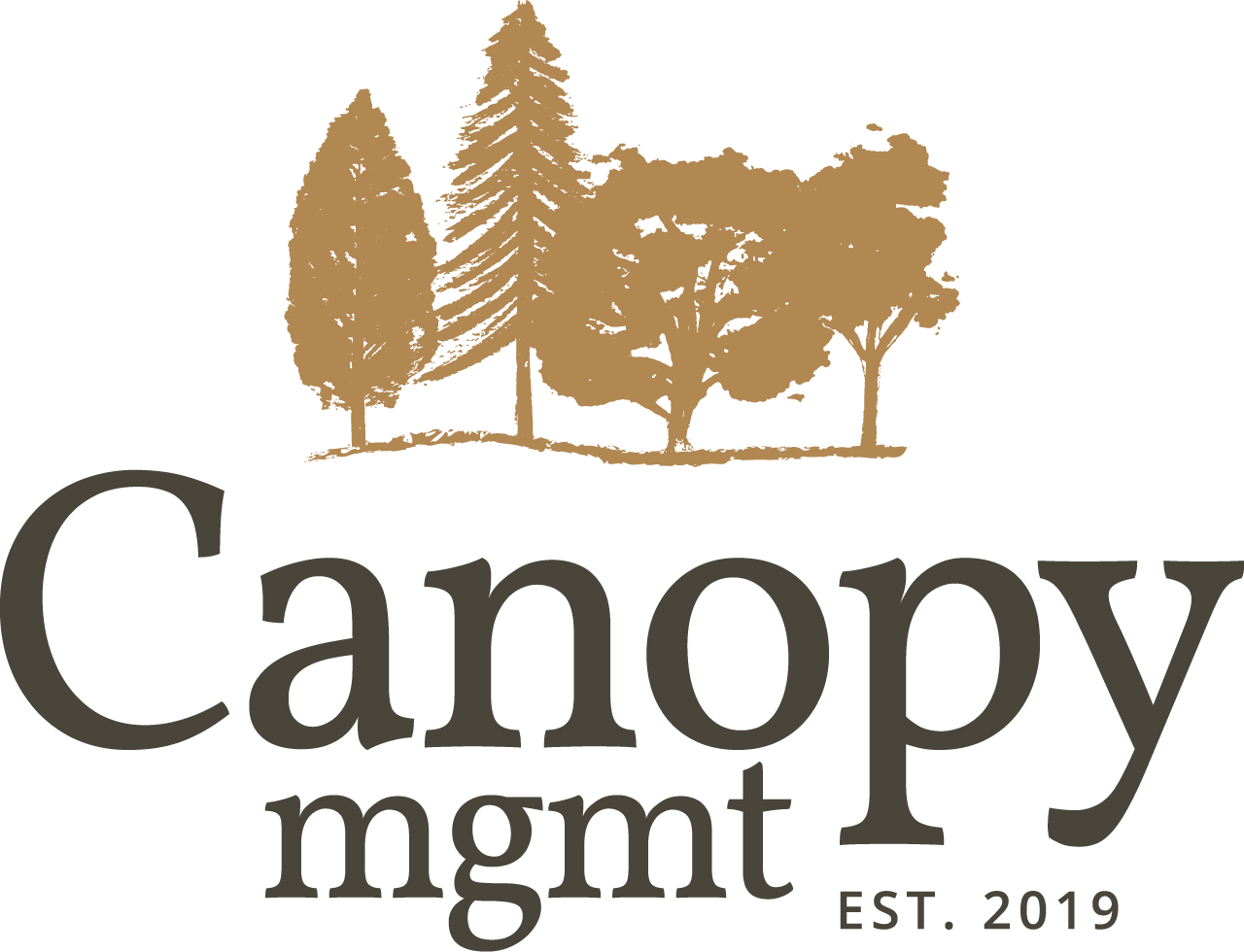What’s the best rental strategy for your investment property?
In today’s booming real estate market, choosing the right rental strategy can make the difference between maximizing your returns and losing valuable capital. At Canopy mgmt, we understand the importance of navigating the intricacies of property investment with confidence and expertise, and we’re here to answer any questions related to the management of your property.
In this blog, we’ll explore the growing debate of Airbnb short term rentals versus renting, as there are some comparative advantages to both. At Canopy mgmt, we offer valuable perspectives on rental profitability, occupancy rates, operational considerations, and regulatory landscapes.
Being informed about the pros and cons of each rental strategy can give you the opportunity to better evaluate your options and make decisions that align with your investment goals.
The status of rental home markets
The vacation home rental market is undeniably strong, as recent data shows impressive growth. In 2022, the worldwide revenue in the vacation rental industry soared to an astounding US$ 88 billion and is projected to reach over US$ 122.34 billion by 2032—showing profitability in the short-term rental sector.
So, whether you’re seeking to maximise ROI, diversify your investment portfolio, or build long-term wealth, rest assured that Canopy Mgmt is here to support you every step of the way. Find out what success looks like for you as we review the differences between Airbnb versus renting and uncover what works best.
Should I convert my property into an Airbnb short term rentals?
Property owners have been able to capitalise exponentially on the short-term rental market thanks to Airbnb Canada and it’s expansion worldwide in recent years. With Airbnb short term rentals becoming increasingly popular, landlords can demand premium rates during peak seasons and leverage dynamic pricing strategies to maximise occupancy.
However, it’s essential to acknowledge the inherent challenges of managing Airbnb properties, including higher turnover rates, increased maintenance costs, and regulatory hurdles. With higher rental income, property owners need to consider the risks and resources to effectively manage short term rentals.
Pros
Higher rental income potential: Airbnb short term rentals often command higher nightly rates, especially during peak seasons or special events, which can lead to higher overall rental income in the long run.
Flexibility for property use: Property owners can use their Airbnb property for personal use during times when it’s not rented out, a high point of flexibility and convenience.
Dynamic pricing: Airbnb allows property owners to adjust rental rates based on demand, enabling them to make money on fluctuations in market demand and maximise occupancy.
Opportunity for property showcase: Airbnb listings can serve as a platform to showcase awe-inspiring, unusual, or luxury properties—which attracts guests looking for distinctly beautiful accommodations.
Cons
Operational complexity: Managing an Airbnb property requires significant time and effort, including guest communication, property maintenance, and cleaning services.
Seasonal demand fluctuations: Airbnb short term rentals are subject to seasonal demand fluctuations, with periods of high demand followed by slower seasons, leading to income variability—and no guaranteed rental income.
Regulatory challenges: Some cities have strict regulations on airbnb short term rentals, including zoning restrictions, occupancy limits, and licensing requirements, which may pose challenges for property owners—especially those newer to the rental world.
Higher turnover rates: Airbnb properties can typically experience higher turnover rates compared to long term rentals, leading to increased vacancy periods and turnover costs—including additional damages and cleaning periods.
What about Airbnb long term rentals?
While Airbnb long term rentals offer increased profitability like with short term rentals, they do come with notable drawbacks in comparison to traditional leases. Again, property owners must be able to cope with fluctuating demand, varying occupancy rates, and Airbnb’s service fees, which can range from 14 to 16 percent of each booking.
Hosts with stricter cancellation policies may face even higher fees, impacting overall rental income. In addition, stays of 28 nights or more may incur reduced fees, but property owners must carefully consider whether the benefits outweigh the costs.
What if I choose long term rental leases?
On the other hand, traditional long term rentals offer stability and predictability for property owners seeking consistent cash flow. With long term rentals in high demand across Canada, landlords can secure reliable tenants for extended lease periods, minimizing vacancies and turnover costs.
While long term rentals may yield lower nightly rates compared to Airbnb, they often involve fewer operational complexities and require less hands-on management. Landlords can benefit from steady rental income and reduce the risks associated with fluctuating occupancy rates.
Pros
Stable, predictable income: Traditional long term rentals offer property owners stable, predictable rental income, as tenants sign lease agreements for extended periods, typically one year or more.
Lower turnover costs: Long term rentals have lower turnover rates compared to airbnb short term rentals, reducing vacancy periods and turnover costs for property owners.
Passive income: Once a long term rental property is leased, property owners can enjoy passive income without the need for frequent management or oversight.
Tenant stability: Long term rental leases provide stability for both property owners and tenants, fostering long-term relationships and reducing the need for frequent tenant turnover.
Cons
Lower rental rates: Long term rental rates are typically lower compared to airbnb short term rentals, resulting in lower overall rental income for property owners.
Limited flexibility: Property owners have limited flexibility to adjust rental rates or make changes to rental terms during the lease term, as lease agreements are typically binding for the agreed-upon duration.
Tenant-screening challenges: Finding suitable long-term tenants may require thorough screening processes to ensure reliability, creditworthiness, and suitability for the property.
Maintenance responsibilities: While long term rentals involve fewer operational complexities compared to airbnb short term rentals, property owners are still responsible for property maintenance, repairs, and upkeep throughout the lease term—unless they incorporate a management company into their costings.
How can a property management company assist with long term rentals?
A property management company can provide valuable assistance to property owners managing long term rentals, offering expertise, support, and peace of mind throughout the rental process. Here’s how:
Tenant screening: Property management companies can conduct thorough tenant screenings, including credit checks, background checks, and rental history verification, to ensure reliable, responsible tenants are selected for the property.
Lease administration: Property management companies can handle lease administration tasks, including lease drafting, renewal negotiations, and enforcement of lease terms, ensuring compliance with rental regulations and legal requirements.
Property maintenance: Property management companies can oversee property maintenance, repairs, and upkeep, ensuring the property remains in optimal condition and addressing any issues promptly to maintain tenant satisfaction.
Rent collection: Property management companies can manage rent collection processes, including invoicing tenants, tracking rent payments, and pursuing delinquent payments if necessary, ensuring property owners receive timely rental income.
Tenant relations: Property management companies can serve as a point of contact for tenants, addressing inquiries, concerns, and maintenance requests promptly and professionally, fostering positive tenant relationships and tenant satisfaction.
Maximising ROI—the final verdict
When deliberating between Airbnb and traditional renting, property owners should consider the assurance provided by partnering with a property management company and real estate specialists. While Airbnb short term rentals may promise higher returns in optimal market conditions, they entail active management. And a hands-on understanding of guest preferences. On the other hand, long term rentals offer a more reliable income stream. And may appeal to those seeking a hands-off approach to property management.
With our property management professionals at Canopy mgmt, landlords can navigate the complexities of the rental market with confidence. We’re here to offer valuable guidance on maximising ROI, minimising risk, and optimising the overall performance of your rental properties.
Ultimately, the decision should align with individual investment goals and preferences, with the support of knowledgeable professionals beside them. To ensure success in the competitive real estate landscape. Because after all, a home is one of your most valuable assets, and it is worth nurturing.


